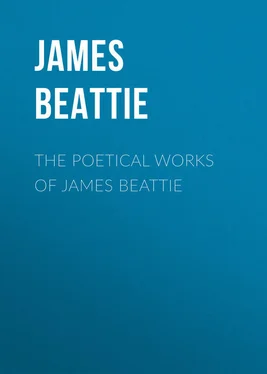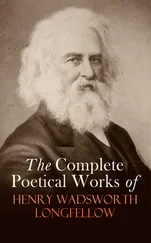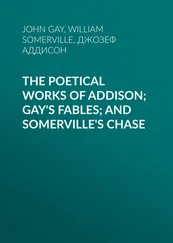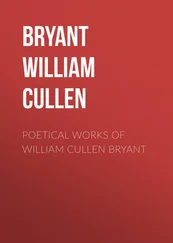James Beattie - The Poetical Works of James Beattie
Здесь есть возможность читать онлайн «James Beattie - The Poetical Works of James Beattie» — ознакомительный отрывок электронной книги совершенно бесплатно, а после прочтения отрывка купить полную версию. В некоторых случаях можно слушать аудио, скачать через торрент в формате fb2 и присутствует краткое содержание. ISBN: , Жанр: foreign_antique, foreign_prose, foreign_poetry, на английском языке. Описание произведения, (предисловие) а так же отзывы посетителей доступны на портале библиотеки ЛибКат.
- Название:The Poetical Works of James Beattie
- Автор:
- Жанр:
- Год:неизвестен
- ISBN:http://www.gutenberg.org/ebooks/41760
- Рейтинг книги:5 / 5. Голосов: 1
-
Избранное:Добавить в избранное
- Отзывы:
-
Ваша оценка:
- 100
- 1
- 2
- 3
- 4
- 5
The Poetical Works of James Beattie: краткое содержание, описание и аннотация
Предлагаем к чтению аннотацию, описание, краткое содержание или предисловие (зависит от того, что написал сам автор книги «The Poetical Works of James Beattie»). Если вы не нашли необходимую информацию о книге — напишите в комментариях, мы постараемся отыскать её.
The Poetical Works of James Beattie — читать онлайн ознакомительный отрывок
Ниже представлен текст книги, разбитый по страницам. Система сохранения места последней прочитанной страницы, позволяет с удобством читать онлайн бесплатно книгу «The Poetical Works of James Beattie», без необходимости каждый раз заново искать на чём Вы остановились. Поставьте закладку, и сможете в любой момент перейти на страницу, на которой закончили чтение.
Интервал:
Закладка:
A new edition of our author's Poems came forth in 1766. From it a large portion of the pieces published in the former collection was rejected; while The Judgment of Paris , the Lines on the Death of Churchill , and one or two copies of verses never before printed, supplied the deficiency. The translation of Addison's Pygmæogeranomachia , which concludes the volume, is remarkable for its spirited and graceful versification.
In a letter to Dr. Blacklock, dated 22d September in the same year, Beattie thus alludes to his great work, The Minstrel : —
"Not long ago I began a poem in the style and stanza of Spenser, in which I propose to give full scope to my inclination, and be either droll or pathetic, descriptive or sentimental, tender or satirical, as the humour strikes me; for, if I mistake not, the manner which I have adopted admits equally of all these kinds of composition. I have written one hundred and fifty lines, and am surprised to find the structure of that complicated stanza so little troublesome. I was always fond of it, for I think it the most harmonious that ever was contrived. It admits of more variety of pauses than either the couplet or the alternate rhyme; and it concludes with a pomp and majesty of sound, which, to my ear, is wonderfully delightful. It seems also very well adapted to the genius of our language, which, from its irregularity of inflexion and number of monosyllables, abounds in diversified terminations, and consequently renders our poetry susceptible of an endless variety of legitimate rhymes. But I am so far from intending this performance for the press, that I am morally certain it never will be finished. I shall add a stanza now and then, when I am at leisure, and when I have no humour for any other amusement; but I am resolved to write no more poetry with a view to publication, till I see some dawnings of a poetical taste among the generality of readers, of which, however, there is not at present any thing like an appearance."
Writing to Sir William Forbes, 8th January, 1767, our author gives an account of the cause of his composing The Hermit , the most perfect of his minor poems: —
"The favourable reception you gave to my little poem, demands my acknowledgments. I aimed at simplicity in the expression, and something like uncommonness in the thought; and I own I am not ill pleased with it upon the whole; though I am sensible it does not answer the purpose for which I made it. I wrote it at the desire of a young lady of this country, who has a taste both for poetry and music, and wanted me to make words for a Scots tune called 'Pentland Hills,' of which she is very fond. The verses correspond well enough with the measure and subject of the tune, but are extremely unsuitable for the purpose of a song." 9 9 I have been told that the poem consisted originally of only four stanzas, and that the two beautiful ones with which it now concludes were added, a considerable time after the others were written, at the request of Mrs. Carnegie, of Charlton, near Montrose. This lady, whose maiden name was Scott, was authoress of a poem called Dunotter Castle , printed in the second edition of Colman and Thornton's Poems by Eminent Ladies . 'Pentland Hills', for which Beattie wrote The Hermit , was an air composed by Mr. Tytler, of Woodhouselee, in imitation of the old Scottish melodies.
To Dr. Blacklock he again writes concerning The Minstrel :
"Aberdeen, 20th May, 1767."My performance in Spenser's stanza has not advanced a single line these many months. It is called 'The Minstrel.' The subject was suggested by a dissertation on the old minstrels, which is prefixed to a collection of Ballads lately published by Dodsley, in three volumes. I propose to give an account of the birth, education, and adventures of one of those bards; in which I shall have full scope for description, sentiment, satire, and even a certain species of humour and of pathos, which, in the opinion of my great master are by no means inconsistent, as is evident from his works. My hero is to be born in the south of Scotland; which you know was the native land of the English minstrels; I mean of those minstrels who travelled into England, and supported themselves there by singing their ballads to the harp. His father is a shepherd. The son will have a natural taste for music and the beauties of nature; which, however, languishes for want of culture, till in due time he meets with a hermit, who gives him some instruction; but endeavours to check his genius for poetry and adventures, by representing the happiness of obscurity and solitude, and the bad reception which poetry has met with in almost every age. The poor swain acquiesces in this advice, and resolves to follow his father's employment; when, on a sudden, the country is invaded by the Danes, or English borderers, (I know not which,) and he is stript of all his little fortune, and obliged by necessity to commence minstrel. This is all that I have as yet concerted of the plan. I have written one hundred and fifty lines, but my hero is not yet born, though now in a fair way of being so, for his parents are described and married. I know not whether I shall ever proceed any farther: however, I am not dissatisfied with what I have written."
On the 28th June, 1767, Beattie was married at Aberdeen to Miss Mary Dun, only daughter of the rector of the Grammar-school in that city; a mutual attachment having for some time existed between them. She was a few years younger than our author: her person was pleasing, her manners were lively; and she possessed a moderate share of accomplishments. This union, which seemed to promise nothing but happiness to Beattie, threw the blight of misery over his later years, and undoubtedly contributed to shorten his career. The woman whom he had selected as a partner for life, inherited from her mother the most dreadful of human maladies, – insanity; which, a few years after marriage, displayed itself in strange follies and caprices, 10 10 On one occasion, I have been informed, she took some China jars from the chimney-piece, and carefully arranged them on the top of the parlour door, in order that when Beattie opened it, they might fall upon his head.
and at last broke forth with such violence, as to render her separation from her family absolutely necessary. By this lady he had two sons, of whom particular mention will be made hereafter.
Beattie now employed himself on the composition of his Essay on Truth , a work, which was to be honoured with such marks of public approbation, as the most sanguine author in his wildest dreams of success could hardly have anticipated. In a letter to Sir William Forbes, dated 17th January, 1768, he says: —
"I have, for a time, laid aside my favourite studies, that I might have leisure to prosecute a philosophical inquiry, less amusing indeed than poetry and criticism, but not less important. The extraordinary success of the sceptical philosophy has long filled me with regret. I wish I could undeceive mankind in regard to this matter. Perhaps this wish is vain: but it can do no harm to make the trial. The point I am now labouring to prove, is the universality and immutability of moral sentiment, – a point which has been brought into dispute, both by the friends and by the enemies of virtue. In an age less licentious in its principles, it would not, perhaps, be necessary to insist much on this point. At present it is very necessary. Philosophers have ascribed all religion to human policy. Nobody knows how soon they may ascribe all morality to the same origin; and then the foundations of human society, as well as of human happiness, will be effectually undermined. To accomplish this end, Hobbes, Hume, Mandeville, and even Locke, have laboured; and, I am sorry to say, from my knowledge of mankind, that their labour has not been altogether in vain. Not that the works of these philosophers are generally read, or even understood by the few who read them. It is not the mode, now-a-days, for a man to think for himself; but they greedily adopt the conclusions, without any concern about the arguments or principles whence they proceed; and they justify their own credulity by general declamations upon the transcendent merit of their favourite authors, and the universal deference that is paid to their genius and learning. If I can prove those authors guilty of gross misrepresentations of matters of fact, unacquainted with the human heart, ignorant even of their own principles, the dupes of verbal ambiguities, and the votaries of frivolous, though dangerous philosophy, I shall do some little service to the cause of truth; and all this I will undertake to prove in many instances of high importance."
Читать дальшеИнтервал:
Закладка:
Похожие книги на «The Poetical Works of James Beattie»
Представляем Вашему вниманию похожие книги на «The Poetical Works of James Beattie» списком для выбора. Мы отобрали схожую по названию и смыслу литературу в надежде предоставить читателям больше вариантов отыскать новые, интересные, ещё непрочитанные произведения.
Обсуждение, отзывы о книге «The Poetical Works of James Beattie» и просто собственные мнения читателей. Оставьте ваши комментарии, напишите, что Вы думаете о произведении, его смысле или главных героях. Укажите что конкретно понравилось, а что нет, и почему Вы так считаете.












